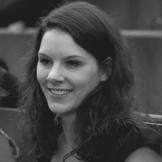Katharina Metz
Global Humanities Junior Fellow at Harvard University
September 2015 - January 2016
Altruism in late Nineteenth-Century American Literature
Her work analyzes representations of altruism in late nineteenth-century American realist literature, and investigates in which ways the term’s arrival corresponds with new conceptualizations of realist literary form. In William Dean Howells’s reformist novels and critical work from the 1880s and 1890s, “altruism” allows for an imagination of human nature and the human good that runs counter to ideologies of liberal individualism that marked America’s crisis-ridden society at the turn of the century. Moreover, “altruism” was, in the nineteenth century, conceived of as a decidedly scientific concept, due to its coinage within Auguste Comte’s positivism and the term’s significant popularization via contemporary evolutionary theories. Its codification as “scientific,” “rational,” or “objective” enables “altruism” to reformulate various concepts that have been crucial for discussions revolving around reform and literature, like the Christian notion of charity, the sentimentalist concept of sympathy, and the economic model of philanthropy - concepts that were discarded as outdated or unproductive for the project of reformist realism.
Katharina Metz has been a doctoral candidate of American literature at the Graduate School of North American Studies at Freie Universität Berlin since October 2013. She studied English and German literature at Universität Freiburg and Indiana University, Bloomington, and completed her Master’s degree in North American Studies at the John F. Kennedy Institute (Freie Universität Berlin) in 2013.

